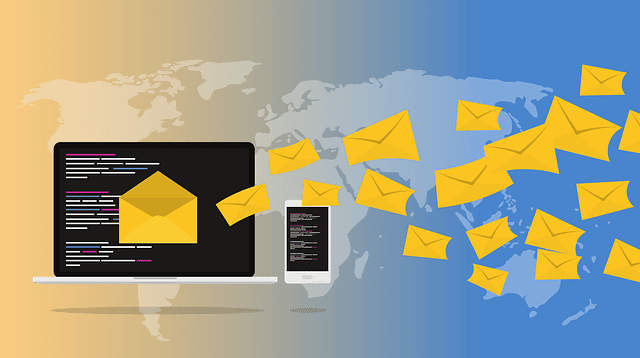
Two of the most common reasons people send emails are to ask for things and to say “thank you.” In both of these situations, English speakers use specific phrases to make their emails sound softer and more polite.
Without these phrases, it is very easy for an email to sound “too direct” or even a little aggressive, which is not what you want. Let’s look at some simple phrases you can use in request emails and thank you emails to make your message polite and diplomatic.
Request Emails: How to Begin
It is more polite if you can begin your email with a greeting and a line of introduction before you make your request. You might use one of these phrases for your greeting:
- Dear Mr. Fisher,
- Dear Mike,
- Good morning,
- Mike,
- Hi Mike,
After your greeting, it is a good idea to include a line of introduction. For a friend, a co-worker, or someone you know, you might write something like this:
- I hope you are doing well.
- I hope you are having a nice summer.
For a stranger, it is a good idea to refer to the connection you have with this person.
- I came across your website as I was searching for music schools.
- I attended your presentation at the Miami Trade Fair last week.
- My friend Jesse has been one of your customers for several years, and he recommended that I contact you.
Request Emails: Phrases for Requests
When you are ready to make your request, here are three phrases you can use to make the request sound polite:
- Could you or could you please…?
Could you send me more information about your schedule?
Could you please check my grade once more? I think there might be a mistake. - Would it be possible to…?
Would it be possible to change our meeting from 10 to 11?
Would it be possible to get more information about your program? - I was wondering if…
I was wondering if I could change my start time from 8:00 to 9:00 on Friday.
I was wondering if you could give Sara a ride to school on Thursday.
When your request is not urgent and you don’t need the reader to take action right away, it is very polite to communicate this to the reader. Here are two useful phrases you can include when your request is not urgent:
- When you have a moment/ when you have a chance
When you have a chance, could you send me the finished documents?
Could you deliver these updates to Mr. Lee when you have a moment?
Request Emails: Concluding
Finally, before you finish your request email, it is important to include a quick “thank you.” Here are some good phrases that you can use:
- Thank you so much for your help. I really appreciate it.
- Thank you for your help with this.
- I appreciate your help.

Request Emails: Examples
Here are two examples of request emails which include these phrases.
Dear Dr. Smith,
I attended your presentation at the Lone Star conference last week, and I really enjoyed it. Would it be possible for you to send me a link to the presentation? Thank you so much.
Best regards,
Anne
Good morning Ms. Powell,
I hope you are doing well. Thank you for your help last week on the cost estimate. Could you send me the finished document when you have a chance? I really appreciate it.
Warm regards,
Wendy
Thank You Emails
When you are writing a “thank you” email, you can begin your email immediately by saying “thank you.” Then, in order to make your email sound more polite, you should include some additional sentences.
You can repeat the idea of “thank you” using different words, and you can also express why the gift or action is important to you or how you are using it. You can even offer to “return the favor.” In other words, you can offer to do something nice in the future for the person who did something nice for you.
Basic Thank You Structure
Notice that the preposition for follows the words “thank you.”
- Thank you for dinner last night.
- Thank you for the flowers.
- Thank you for the invitation.
If you are thanking someone for an action, the verb will be in the gerund (-ing) form.
- Thank you for lending me your car.
- Thank you for taking care of my house.
- Thank you for sending me the documents I needed.

More Ways to Express Thanks in E-Mails
After you have said “thank you,” it is important to add a few more sentences. Your email doesn’t need to be very long, but if you can say “thank you” in a few different ways, your email will sound more polite. You might use one of these phrases, depending on the situation and what you are saying “thank you” for.
- I really appreciate it.
- I am very grateful for your help.
- I really enjoyed it.
- It was a big help.
- That was a wonderful surprise.
- We had a great time.
- It was so kind of you to think of me.
- That was very generous of you.
- It would not have been possible without your help.
You may offer to “return the favor,” which means that you can offer to do something for this person in the future. Here you might say:
- If there is ever anything I can do for you, please let me know.

Thank You Emails: Examples
Dear Mark,
Thank you for letting me borrow your car yesterday. It made it so much easier for me to move my furniture to my new apartment. I really appreciate it, and I’m grateful for your help. Thank you again, and I hope you have a wonderful day.
Anne
Dear Jamie,
Thank you so much for the flowers that you sent for my birthday. They were such a nice surprise, and they look beautiful in my living room. It was so thoughtful of you to remember my birthday. You really brightened my day! Thank you again for thinking of me.
Best wishes,
Anne
Learn more:
Videos – Writing request & thank you e-mails:
- How to ask for something politely in an email: https://www.youtube.com/watch?v=cAS8DUDcFVs
- How to write a thank you email: https://www.youtube.com/watch?v=4GU2MnsmGY8


